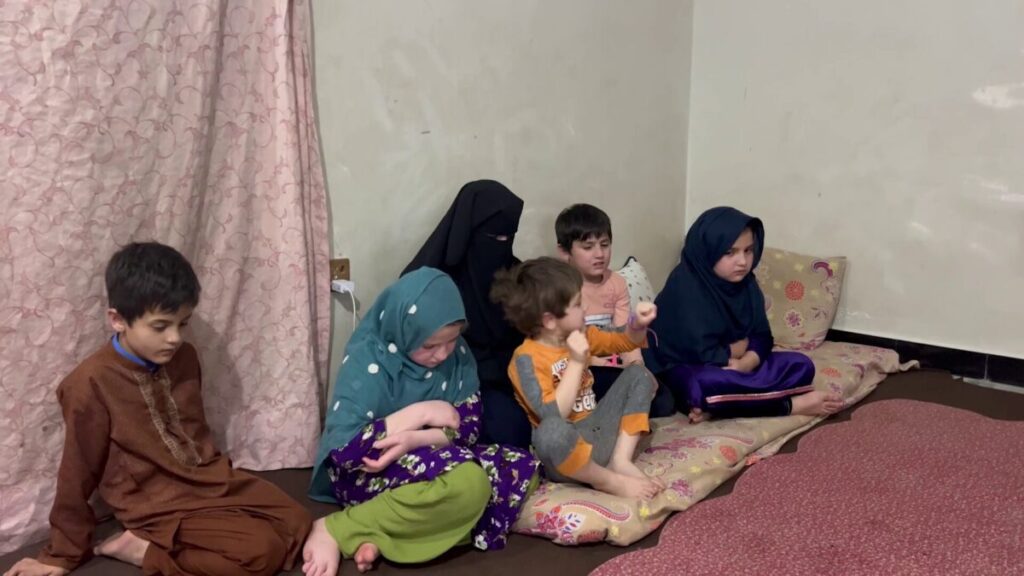ISLAMABAD — Afghan immigrants in Pakistan expressed deep concern over the impending second phase of forced deportations under the new Pakistani government, citing the inability to leave their established homes and the resulting poverty and hardship due to lack of employment opportunities.
Many of these immigrants describe living in conditions akin to imprisonment, with restrictions so severe they often prevent their children from going outside for fear of not being recognized by Pakistani police.
The Khyber Pakhtunkhwa state administration recently announced plans to complete the identification process of Afghan immigrants by April 15.
Roya, an Afghan immigrant who has found refuge in Pakistan for two years with her seven children, shared her harrowing experience of losing her husband to the absence of medical facilities and now facing the daunting prospect of forced deportation amidst poverty and hardship. “Some nights we don’t have bread and we have to sleep with an empty stomach,” she said. “With my husband, we went to the United Nations office for our case, but because he had no medicine and suffered a heart attack, my husband died there. Now that I can’t return to Kabul because of the Taliban, I am stuck here, and life is very difficult for me.”

The grim reality of poverty has also tarnished the childhood of Karim and Kajal, who find themselves begging from dawn to dusk just for a morsel of bread. “We work in the center. When I earn 100 or 200 kaldars, no one pays. If we can make three or four hundred kaldars, we return home, only to be blamed for not working enough,” Kajal explained.
Karim, another Afghan immigrant, echoed similar sentiments, “We came here from Afghanistan because we had neither bread nor money there. Here, we face the same plight. I had a brother who worked alongside me. Now he’s ill, and we have nothing to eat.”
Economic struggles remain a significant concern for Afghan immigrants in Pakistan, as highlighted by Maywand Elmi Afghan, the deputy of the Afghan Migrants Council in Pakistan. “To my knowledge, 25 to 30 percent of our immigrants live below the poverty line, indicating severe economic problems. Perhaps 10-15 percent may not face economic challenges, but the rest are grappling with serious financial difficulties,” he said.
Following the Taliban’s takeover of Afghanistan, Pakistan has seen an influx of Afghan citizens seeking refuge for various reasons, including fleeing Taliban rule, aiming for third countries, or escaping poverty.
Pakistani officials have indicated that currently, less than 800,000 Afghan citizens may have sought refuge in the country for these reasons.





